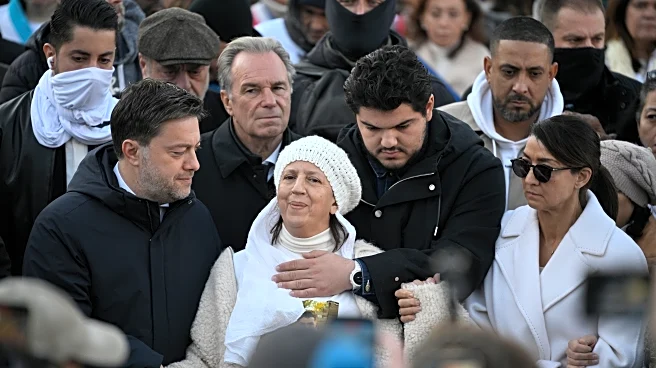Rapid Read • 8 min read
Former Governor Andrew Cuomo has publicly criticized Democratic socialist Zohran Mamdani for occupying a rent-stabilized apartment in Astoria, Queens, which Cuomo argues should be available to those in need. Mamdani, who pays $2,300 monthly for the apartment, has been accused by Cuomo of taking advantage of affordable housing during a time of significant housing shortages in New York City. Cuomo's comments, shared on social media, highlight Mamdani's affluent background and his wife's financial status, suggesting that Mamdani does not require the financial relief provided by rent stabilization. Mamdani, who has previously stated his intention to move out, has been living in the apartment since his income was significantly lower. The controversy has sparked a broader discussion about the allocation of affordable housing resources in the city.
AD
This incident underscores the ongoing debate over affordable housing in New York City, a critical issue as the city faces a historic affordability crisis. The situation highlights the tension between public figures' personal choices and their public responsibilities, especially those advocating for social justice and economic equality. Mamdani's case raises questions about the ethical use of rent-stabilized housing by individuals with substantial financial means. The broader implications affect policy discussions on how to best allocate limited housing resources to those most in need, potentially influencing future housing policies and political discourse in the city.
The public scrutiny on Mamdani may pressure him to expedite his plans to vacate the apartment, potentially setting a precedent for other public figures in similar situations. The debate may also prompt legislative discussions on the criteria for rent-stabilized housing eligibility, aiming to ensure that such resources are directed towards those who genuinely need them. Political leaders and housing advocates might use this case to push for reforms in housing policy, addressing the balance between personal wealth and access to subsidized housing.
The controversy touches on deeper issues of privilege and responsibility among public officials, particularly those who advocate for economic equality. It raises ethical questions about the role of personal wealth in accessing public resources and the moral obligations of leaders to align their personal actions with their public rhetoric. This case could influence public perceptions of political figures and their commitment to the causes they champion, potentially affecting voter trust and engagement.
AD
More Stories You Might Enjoy










